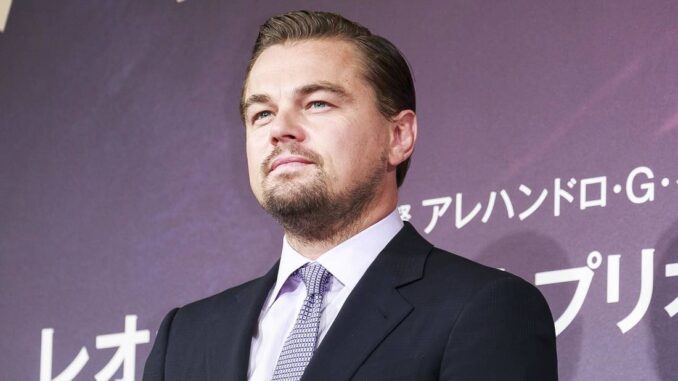
The Unseen Script: Why Leonardo DiCaprio Would Halt "One Battle After Another"
Leonardo DiCaprio, a name synonymous with uncompromising cinematic intensity and a fiercely curated filmography, does not walk away from a project lightly. His career is a testament to meticulous selection, a deep dive into character, and an unwavering commitment to the integrity of the narrative. So, to imagine a scenario where DiCaprio halted filming on a project titled "One Battle After Another" and, moreover, revealed his reasons to the world, speaks volumes not just about the hypothetical film, but about the very core of his artistic and ethical being. It would not be a mere disagreement, but a profound clash of principles, a line crossed that his public and private personas could not reconcile.
The first, and perhaps most immediate, reason for such a dramatic revelation would stem from a betrayal of artistic integrity. DiCaprio has built his legacy on truth-telling, often immersing himself in grueling roles that demand a profound understanding of the human condition, be it the ruthless ambition of Jordan Belfort or the primal survival instincts of Hugh Glass. If "One Battle After Another" began to stray from its initial promise – perhaps simplifying complex historical events, glorifying violence without consequence, or reducing nuanced characters to one-dimensional archetypes – DiCaprio would find himself at odds with the very soul of the project. He fights for authenticity on screen; if the script became a caricature, or the director’s vision veered into exploitation rather than exploration, his departure, and the subsequent revelation, would be a public declaration of war against the dilution of art, a clarion call for responsible storytelling in an industry often tempted by sensationalism. He would reveal the reason not just for himself, but for the craft he so deeply respects.
Beyond the artistic, there lies DiCaprio’s powerful and well-documented ethical and environmental convictions. He is not merely an actor; he is a prominent environmental activist, a voice for the planet, and a champion of social justice. If "One Battle After Another," despite its title, began to implicitly or explicitly endorse practices, ideologies, or narratives that fundamentally contradicted his deeply held beliefs, his participation would become a moral compromise he simply could not stomach. Perhaps the film's backdrop involved an industry known for its ecological devastation, and the narrative failed to critically address it, or worse, subtly celebrated it. Perhaps the production itself was riddled with unsustainable practices, or allegations of unethical conduct towards its crew or subjects. In such a scenario, revealing his reasons would transcend a personal career choice; it would be an act of conscience, a strategic use of his immense platform to highlight a broader issue. He would become the messenger, making it clear that his commitment extends far beyond the silver screen, bleeding into the real-world battles he consistently champions.
Finally, the act of revealing the reason, rather than quietly departing, underscores a deeper commitment to accountability and impact. DiCaprio understands the power of his voice. To simply walk away would be to allow the project to continue, potentially perpetuating the very issues that drove him off set. By revealing his reasons, he would be deliberately drawing a line in the sand, sending a powerful message to studios, directors, and even the audience. It would be a calculated risk, potentially burning bridges, but one he would undertake if he felt the stakes were high enough. This public act would serve as a warning, an invitation for introspection within the industry, and a reaffirmation of his own brand as an artist who aligns his work with his values. He would effectively turn his departure into its own "battle," fighting for the principles that matter, ensuring that the next "battle" he chooses to portray is one worth fighting, both on screen and off.
In essence, if Leonardo DiCaprio revealed the reason "One Battle After Another" stopped filming, it would be because the cinematic struggle had become too real, too ethically compromising, or too artistically devoid of the truth he perpetually seeks. It would be a testament to an artist for whom the craft is not merely a job, but a profound canvas for his convictions, and a stark reminder that even the most dedicated actors have an ultimate, unbreakable line.